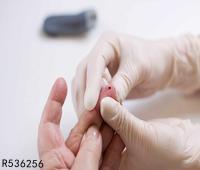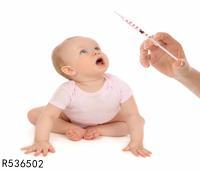【寨卡】新进展:世卫组织召开第二次突发事件委员会议
2017-05-17 08:22 来源:网友分享
世界卫生组织总干事根据《国际卫生条例(2005)》召集突发事件委员会,于欧洲中部时间2016年3月8日13:00-16:45,以电话会议的形式召开了关于受寨卡病毒影响的部分地区出现小头症和其它神经疾患聚集性病例问题的第二次会议。
世卫组织秘书处向委员会介绍了关于总干事于2016年2月1日提出的各项临时建议的实施行动情况,并介绍了与寨卡病毒传播具有时间关联的小头症和吉兰 ╟ 巴雷综合征聚集性病例。委员会还收到关于寨卡病毒感染、小头症和吉兰 ╟ 巴雷综合征之间可能因果关系的观察、比较和实验研究的补充数据。
下列缔约国提供了在寨卡病毒传播情况下发生的小头症、吉兰 ╟ 巴雷综合征和其它神经疾患信息:巴西、佛得角、哥伦比亚、法国和美国。
委员会注意到缔约国以及学术机构提供的在有寨卡病毒感染情况下发生的先天性畸形和神经疾患的病例报告、病例系列、一项吉兰 ╟ 巴雷综合征病例对照研究和一项小头症队列研究等新信息。这些新信息显示需要进一步开展工作,以收集更多的关联证据,并解释国家数据之间的任何出入。委员会建议,小头症和其它神经疾患聚集性病例仍构成国际关注的突发公共卫生事件,并称有越来越多的证据显示它们与寨卡病毒存在因果关系。
委员会根据《国际卫生条例(2005)》向总干事提出了下列意见供其考虑,以应对该国际关注的突发公共卫生事件。
小头症、其它神经疾患和寨卡病毒
应加紧研究小头症、其它神经疾患(包括吉兰 ╟ 巴雷综合征)以及寨卡病毒新聚集病例之间的关系。
应特别重视进一步收集关于寨卡各病毒株的基因序列和临床结果数据,研究小头症的神经病理学,在新近受到感染的其它环境中开展更多的病例对照研究和队列研究,并开发动物实验研究模型。
应加速研究寨卡病毒感染的自然史,包括无症状感染的发生率,无症状感染的影响,特别是对妊娠的影响,以及病毒排出的持续时间。
应在已知发生寨卡病毒传播、但未观察到聚集病例的其它地区针对小头症及其它神经系统疾患发生率开展回顾性和前瞻性研究。
应在研究工作中继续探讨观察到的小头症和其它神经系统疾患聚集性病例的其它致病因素或辅助因子的可能性。
为便于开展此项研究并确保最快速获得研究结果:
应加强对小头症和吉兰 ╟ 巴雷综合征的标准化监测,特别在已知寨卡病毒传播的地区和有传播风险的地区。
应着手制定“先天性寨卡感染”可能病例的定义。
与小头症和/或吉兰 ╟ 巴雷综合征的发生率上升以及寨卡病毒传播相关的临床、病毒学及流行病学数据,应迅速与世卫组织分享,推动国际社会对这些事件的了解,指导国际社会对防控工作的支持,并优先开展进一步的研究和产品研发。
监测
应加强寨卡病毒感染的监测和通报,向传播地区和有风险地区介绍标准病例定义和诊断方法;新受到寨卡病毒感染的地区应采取下列病媒控制措施。
病媒控制
应增强病媒监测,包括查明蚊媒种属及其对杀虫剂的敏感性,并应加强风险评估和病媒控制措施。
应积极推广和实施病媒控制和适当的个人防护措施,减少接触寨卡病毒的风险。
长期而言,各国应加强病媒控制措施,世卫组织总干事应探索采用《国际卫生条例》机制的可能性,并考虑将此问题提交即将召开的下一届世界卫生大会,以便更好地与各国就此问题进行交流。
风险沟通
应在有寨卡病毒传播的国家加强风险沟通,处理群众关切的问题,加强社区参与,改进报告制度,确保病媒控制和个人防护措施。
应在适当评估公众认识、知识和信息的基础上采取这些措施;应严格评估风险沟通措施的影响,以指导调整这些措施和增强其影响。
应注意确保育龄妇女,特别是孕妇掌握必要的信息和材料,以减少接触寨卡病毒的风险。
应向生活在据报发生寨卡病毒传播的地区或从这些地区返回的人提供关于性传播风险的信息并提供能够减少此风险的措施。
临床照护
应根据现有的最佳信息及国家实践和政策,对已接触到寨卡病毒的孕妇进行辅导,并随访分娩结果。
在已知寨卡病毒传播的地区,卫生服务部门应为可能增加的神经系统综合征和/或先天性畸形做好准备。
旅行措施
不应对存在寨卡病毒传播疫情的国家、地区和/或领土实行全面的旅行或贸易限制。
应建议孕妇不要前往目前存在寨卡病毒疫情的地区旅行;若孕妇的性伴侣生活在有寨卡病毒疫情地区或从这些地区返回,该孕妇应在其妊娠期确保采用安全性行为或禁绝性生活。
应向前往寨卡病毒疫区旅行者提供最新建议,向其说明潜在风险和采取适当措施降低蚊子叮咬的可能性。旅行者返回后应采取适当措施,包括采用安全性行为,以降低进一步传播的风险。
随着进一步了解与寨卡病毒感染相关风险的性质和持续时间,世界卫生组织应定期更新其旅行建议。
应根据《国际卫生条例(2005)》实施世卫组织关于机场病媒控制的标准建议。国家应考虑对飞机采取灭虫措施。
研究与产品开发
应重点针对寨卡病毒感染开发新诊断工具,以协助采取监测和控制措施,尤其是妊娠管理。
应特别紧急研究、制定和评估新颖的病媒控制措施。
还应加紧开展研发工作,争取在中期推出寨卡病毒疫苗和治疗方法。
基于此建议,总干事宣布这仍构成国际关注的突发公共卫生事件。总干事支持委员会的建议并作为《国际卫生条例(2005)》下的临时建议予以颁布。总干事感谢委员会委员和顾问所提的建议。
who statement on the 2nd meeting of ihr emergency committee on zika virus and observed increase in neurological disorders and neonatal malformations
the second meeting of the emergency committee (ec) convened by the who director-general under the international health regulations (2005) (ihr 2005) regarding clusters of microcephaly cases and other neurological disorders in some areas affected by zika virus was held by teleconference on 8 march 2016, from 13:00 to 16:45 central european time.
the who secretariat briefed the committee on action in implementing the temporary recommendations issued by the director-general on 1 february 2016, and on clusters of microcephaly and guillain-barré syndrome (gbs) that have had a temporal association with zika virus transmission. the committee was provided with additional data from observational, comparative and experimental studies on the possible causal association between zika virus infection, microcephaly and gbs.
the following states parties provided information on microcephaly, gbs and other neurological disorders occurring in the presence of zika virus transmission: brazil, cabo verde, colombia, france, and the united states of america.
the committee noted the new information from states parties and academic institutions in terms of case reports, case series, 1 case control study (gbs) and 1 cohort study (microcephaly) on congenital abnormalities and neurologic disease in the presence of zika virus infection. it reinforced the need for further work to generate additional evidence on this association and to understand any inconsistencies in data from countries. the committee advised that the clusters of microcephaly cases and other neurological disorders continue to constitute a public health emergency of international concern (pheic), and that there is increasing evidence that there is a causal relationship with zika virus.
the committee provided the following advice to the director-general for her consideration to address the pheic, in accordance with ihr (2005).
microcephaly, other neurological disorders and zika virus
research into the relationship between new clusters of microcephaly, other neurological disorders, including gbs, and zika virus, should be intensified.
particular attention should be given to generating additional data on the genetic sequences and clinical effect of different zika virus strains, studying the neuropathology of microcephaly, conducting additional case-control and cohort studies in other and more recently infected settings, and developing animal models for experimental studies.
research on the natural history of zika virus infection should be expedited, including on the rates of asymptomatic infection, the implications of asymptomatic infection, particularly with respect to pregnancy, and the persistence of virus excretion.
retrospective and prospective studies of the rates of microcephaly and other neurological disorders should be conducted in other areas known to have had zika virus transmission but where such clusters were not observed.
research should continue to explore the possibility of other causative factors or co-factors for the observed clusters of microcephaly and other neurological disorders.
to facilitate this research and ensure the most rapid results:
surveillance for microcephaly and gbs should be standardized and enhanced, particularly in areas of known zika virus transmission and areas at risk,
work should begin on the development of a potential case definition for ‘congenital zika infection’,
clinical, virologic and epidemiologic data related to the increased rates of microcephaly and/or gbs, and zika virus transmission, should be rapidly shared with the world health organization to facilitate international understanding of the these events, to guide international support for control efforts, and to prioritize further research and product development.
surveillance
surveillance for and notification of zika virus infection should be enhanced with the dissemination of standard case definitions and diagnostics to areas of transmission and at-risk areas; newly infected areas should undertake the vector control measures outlined below.
vector control
vector surveillance, including the determination of mosquito vector species and their sensitivity to insecticides, should be enhanced to strengthen risk assessments and vector control measures.
vector control measures and appropriate personal protective measures should be aggressively promoted and implemented to reduce the risk of exposure to zika virus.
countries should strengthen vector control measures in the long term and the director-general of who should explore the use of ihr mechanisms, and consider bringing this to a forthcoming world health assembly, as means to better engage countries on this issue.
risk communication
risk communication should be enhanced in countries with zika virus transmission to address population concerns, enhance community engagement, improve reporting, and ensure application of vector control and personal protective measures.
these measures should be based on an appropriate assessment of public perception, knowledge and information; the impact of risk communication measures should be rigorously evaluated to guide their adaptation and improve their impact.
attention should be given to ensuring women of childbearing age and particularly pregnant women have the necessary information and materials to reduce risk of exposure.
information on the risk of sexual transmission, and measures to reduce that risk, should be available to people living in and returning from areas of reported zika virus transmission.
clinical care
pregnant women who have been exposed to zika virus should be counselled and followed for birth outcomes based on the best available information and national practice and policies,
in areas of known zika virus transmission, health services should be prepared for potential increases in neurological syndromes and/or congenital malformations.
travel measures
there should be no general restrictions on travel or trade with countries, areas and/or territories with zika virus transmission.
pregnant women should be advised not travel to areas of ongoing zika virus outbreaks; pregnant women whose sexual partners live in or travel to areas with zika virus outbreaks should ensure safe sexual practices or abstain from sex for the duration of their pregnancy.
travellers to areas with zika virus outbreaks should be provided with up to date advice on potential risks and appropriate measures to reduce the possibility of exposure to mosquito bites and, upon return, should take appropriate measures, including safe sex, to reduce the risk of onward transmission.
the world health organization should regularly update its guidance on travel with evolving information on the nature and duration of risks associated with zika virus infection.
standard who recommendations regarding vector control at airports should be implemented in keeping with the ihr (2005). countries should consider the disinsection of aircraft.
research & product development
the development of new diagnostics for zika virus infection should be prioritized to facilitate surveillance and control measures, and especially the management of pregnancy.
research, development and evaluation of novel vector control measures should be pursued with particular urgency.
research and development efforts should also be intensified for zika virus vaccines and therapeutics in the medium term.
based on this advice the director-general declared the continuation of the public health emergency of international concern (pheic). the director-general endorsed the committee’s advice and issued them as temporary recommendations under ihr (2005). the director-general thanked the committee members and advisors for their advice.
















 1
1 2
2 3
3 4
4 5
5